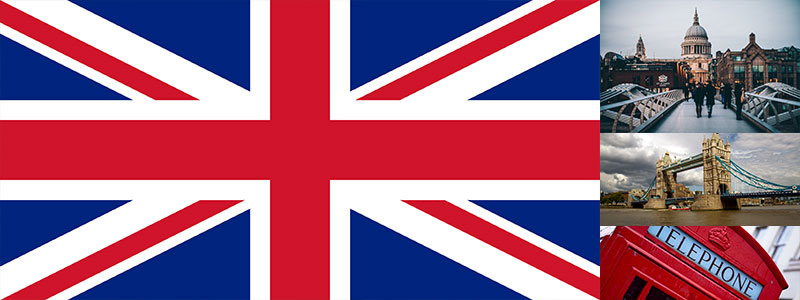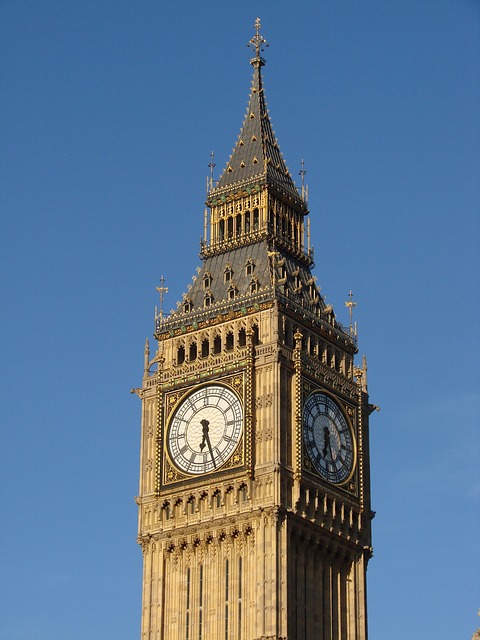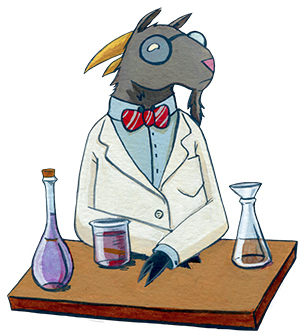Impact of Winston Churchill's WWII Era Speeches
From Londonhua WIKI
Revision as of 21:48, 15 May 2017 by Cmtillotson (talk | contribs)
Milestone 1: Impact of Winston Churchill's WWII Era Speaches
 Your Project Page Picture Caption |
Contents
Abstract
My Milestone focuses on the following question: How did Winston Churchill's famous World War Two speeches impact the course of the war? I have always had an interest in World war II period history, and this will be a great opportunity for me to explore Winston Churchill's World War II impacts.
3) your major takeaways from the experience. This can and should be very similar to the paragraph you use to summarize this milestone on your Profile Page. It should contain your main Objective, so be sure to clearly state a one-sentence statement that summarizes your main objective for this milestone such as "a comparison of the text of Medieval English choral music to that of the Baroque" or it may be a question such as "to what extent did religion influence Christopher Wren's sense of design?"
Introduction
I suggest you save this section for last. Describe the essence of this project. Cover what the project is and who cares in the first two sentences. Then cover what others have done like it, how your project is different. Discuss the extent to which your strategy for completing this project was new to you, or an extension of previous HUA experiences.
As you continue to think about your project milestones, reread the "Goals" narrative on defining project milestones from the HU2900 syllabus. Remember: the idea is to have equip your milestone with a really solid background and then some sort of "thing that you do". You'll need to add in some narrative to describe why you did the "thing that you did", which you'd probably want to do anyway. You can make it easy for your advisors to give you a high grade by ensuring that your project milestone work reflects careful, considerate, and comprehensive thought and effort in terms of your background review, and insightful, cumulative, and methodical approaches toward the creative components of your project milestone deliverables.
PLEASE NOTE: this milestone template has only a few sections as examples, but your actual milestone should have many relevant sections and subsections. Please start to block out and complete those sections asking yourself "who, what, when, where, and why".
Remember, as you move toward your creative deliverable, you're going to want/need a solid background that supports your case, so you want it to paint a clear and thorough picture of what's going on, so that you can easily dissect your creative component and say "This thing I did is rooted in this aspect of my background research".
Section 1: Background
Brief Introduction of Winston Churchill
Winston Churchill was born during 1874 in Oxfordshire, England. [1] He attended the Royal Military College, Sandhurst where he had an undistinguished academic career. [2] He spent time stationed, sometimes reporting as a war correspondent, in places such as India, Sudan, South Africa, and Cuba.[3] He later went on to serve as the first lord of the admiralty during World War I. [4] However, his time in service was best remembered for the disaster of Gillipoli, Turkey where many soldiers died as a result of poor battle planning.[5] Using his military and reporting experience he eventually worked his way into the political scene relying on his keen ability to write and speak serving in different cabinet and elected positions in the time leading up to World War II.[6] He was well known politically for his strong opposition to socialistic ideologies. [7] When Germany declared war on Britain on September 3rd, 1939 Churchill was reinstated once again as the First Lord of the Admiralty until the time he appointed as Prime Minister in 1940. [8]
Conditions and Churchill's Role in World War II
As Prime Minister of the United Kingdom Winston Curchill was tasked with leading the Country through some of the darkest times leading up to and during the Battle of Britain. It is well known that Churchill was a skillful orator and his speeches had the ability to rally his Country around the common goal of defense against Germany.[9] However, it is important to note that it was not just defense that Churchill was interested in. Historians agree that Churchill understood the treat that democracy as well as the "Western World" faced.[10] His replacement of Neville Chamberlain, on May 10th,1940, [11] came at an important time in the UK's history. That very day, May 10th, Hitler began his Blizkreig in mainland Europe attempting to entirely conquer all countries in his path. [12] Before Churchill it had been the policy of Chamberlain to appease Hitler and the German's in order to promote peace. [13] Once Churchill took office he intermediately made it clear in his words that he had no intentions for appeasement, but rather to stand and fight for freedom against the Germans. [14] Churchill's job of keeping England optimistic and ready to fight became harder as the Germans continued to gain ground as France fell in June 17th, 1940. [15] However, Churchill made it his role as Prime Minister in World War II to motivate the British people to remain optimistic and ready to fight despite the successor the Nazi forces.
The Speeches
The following are speeches given by Winston Churchill to the House of Commons in 1940.
Blood, toil, tears, and sweat
This speech was delivered on May 13th[16] and was Churchill's first address to parliament as Prime Minister of the United Kingdom. Due to the developing situation in France the speech was brief and of an urgent tone. Churchill informed parliament that he had assembled his war cabinets and expected to make all other appointments as quickly as possible. He also informed parliament that he intended to appoint many others from different political factions to encourage unity in a time of great danger and importance. The reason for the title of the speech is because Churchill ensured parliament as well as the British people that he would work as hard as possible to ensure the safety of the United Kingdom and her allies. This was the time when Churchill revealed that it was his full intention to fight Germany and no longer hold a policy of appeasement. Upon the conclusion of this speech Churchill was seated and he was met with a standing ovation.[17]
"I have nothing to offer but blood, toil, tears, and sweat." --Winston Churchill
"You ask, what is our policy? I will say: It is to wage war, by sea, land and air, with all our might and with all the strength that God can give us; to wage war against a monstrous tyranny, never surpassed in the dark and lamentable catalogue of human crime." --Winston Churchill
We shall fight on the beaches
Sometimes known as "Wars are not won by evacuations", this speech was delivered on June 4th[18] and was in direct response to Nazi forces gaining ground in Europe towards the UK and France. The Belgian front had been broken and forced the evacuation of the British Expeditionary Force. It was feared that the British would suffer heavy casualties, however, this was not the case. The Expeditionary Force had a successful retreat causing excitement and relief in England.[19] In this speech Churchill attempts to rally his people to the casue that the United Kingdom will fight Hitler's forces regardless of the outcomes in mainland Europe.
"We shall defend our island, whatever the cost may be, we shall fight on the beaches, we shall fight on the landing grounds, we shall fight in the fields and in the streets, we shall fight in the hills; we shall never surrender." -- Winston Churchill
Their finest hour
This speech was delivered on June 18th[20] and Churchill addressed parliament acknowledging the fall of France, and once again affirming his resolve to continue the defense of the United Kingdom. He assumes that the Nazi's will soon attempt to invade the United Kingdom calling it the "Battle of Britain". The reason for the title of the speech is that Churchill says that he believes this time in history will be remembered as the UK's forces finest hour. His central message is to calm the nervous British people that the Country will not fall to the German forces as the mainland countries had. [21]
"But if we fail, then the whole world, including the United States, including all that we have known and cared for, will sink into the abyss of a new Dark Age made more sinister, and perhaps more protracted, by the lights of perverted science. Let us therefore brace ourselves to our duties, and so bear ourselves that, if the British Empire and its Commonwealth last for a thousand years, men will still say, “This was their finest hour.”" --Winston Churchill
The few
This speech was delivered on August 20th [22] and was in direct response to Nazi forces gaining ground in Europe during a the height of the Battle of Britain. He goes on to reassure his people once again and to praise the Royal Air Force for it's bravery in defending the United Kingdom. He makes it very clear that the fate of freedom in Britain rests on this current conflict.[23]
"Never was so much owed by so many to so few" -- Winston Churchill
Section 2: Deliverable
In this section, provide your contribution, creative element, assessment, or observation with regard to your background research. This could be a new derivative work based on previous research, or some parallel to other events. In this section, describe the relationship between your background review and your deliverable; make the connection between the two clear.
Impact of Churchill's Speeches on the War
An analysis of how Churchill's speeches affected outcomes and overall morale in the War.
Lasting Impacts
How the selected Churchill speeches impacted the post war world.
Gallery
Conclusion
In this section, provide a summary or recap of your work, as well as potential areas of further inquiry (for yourself, future students, or other researchers).
References
- ↑ The Life of Churchill Archives - The International Churchill Society. (2017). The International Churchill Society. Retrieved 11 May 2017, from https://www.winstonchurchill.org/the-life-of-churchill/life
- ↑ Kimball, W. F. (20031997). Forged in war: Roosevelt, Churchill, and the Second World War. 1st Ivan R. Dee pbk. [ed.]. New York: Ivan R. Dee. pp. 90
- ↑ Churchill, W., & Churchill, W. S. (2003). Never give in!: The best of Winston Churchill's speeches. London: Pimlico. pp iii
- ↑ Kimball, W. F. (20031997). Forged in war: Roosevelt, Churchill, and the Second World War. 1st Ivan R. Dee pbk. [ed.]. New York: Ivan R. Dee. pp. 90
- ↑ Kimball, W. F. (20031997). Forged in war: Roosevelt, Churchill, and the Second World War. 1st Ivan R. Dee pbk. [ed.]. New York: Ivan R. Dee. pp. 98
- ↑ Herbert, N. Sir Winston Churchill | prime minister of United Kingdom. Encyclopedia Britannica. Retrieved 12 May 2017, from https://www.britannica.com/biography/Winston-Churchill
- ↑ Kimball, W. F. (20031997). Forged in war: Roosevelt, Churchill, and the Second World War. 1st Ivan R. Dee pbk. [ed.]. New York: Ivan R. Dee. pp. 98
- ↑ Herbert, N. Sir Winston Churchill | prime minister of United Kingdom. Encyclopedia Britannica. Retrieved 12 May 2017, from https://www.britannica.com/biography/Winston-Churchill
- ↑ Kimball, W. F. (20031997). Forged in war: Roosevelt, Churchill, and the Second World War. 1st Ivan R. Dee pbk. [ed.]. New York: Ivan R. Dee.
- ↑ Lukacs, J. R. (2008). Blood, Toil, Tears and Sweat. New York: Basic Books. Retrieved from http://ebookcentral.proquest.com.ezproxy.wpi.edu/lib/wpi/detail.action?docID=3028240
- ↑ Churchill, W., & Churchill, W. S. (2003). Never give in!: The best of Winston Churchill's speeches. London: Pimlico. pp. iii
- ↑ Churchill, W., & Churchill, W. S. (2003). Never give in!: The best of Winston Churchill's speeches. London: Pimlico. pp. iii
- ↑ Kimball, W. F. (20031997). Forged in war: Roosevelt, Churchill, and the Second World War. 1st Ivan R. Dee pbk. [ed.]. New York: Ivan R. Dee. pp. 149
- ↑ Churchill, W., & Churchill, W. S. (2003). Never give in!: The best of Winston Churchill's speeches. London: Pimlico. pp. iv
- ↑ Churchill, W., & Churchill, W. S. (2003). Never give in!: The best of Winston Churchill's speeches. London: Pimlico. pp. iv
- ↑ Blood, toil, tears, and sweat - The International Churchill Society. (2017). The International Churchill Society. Retrieved 11 May 2017, from https://www.winstonchurchill.org/resources/speeches/1940-the-finest-hour/blood-toil-tears-sweat
- ↑ Churchill, W., & Churchill, W. S. (2003). Never give in!: The best of Winston Churchill's speeches. London: Pimlico. pp. 168
- ↑ We Shall Fight on the Beaches - The International Churchill Society. (2017). The International Churchill Society. Retrieved 11 May 2017, from https://www.winstonchurchill.org/resources/speeches/1940-the-finest-hour/we-shall-fight-on-the-beaches
- ↑ Churchill, W., & Churchill, W. S. (2003). Never give in!: The best of Winston Churchill's speeches. London: Pimlico. pp. 175
- ↑ Their finest hour - The International Churchill Society. (2017). The International Churchill Society. Retrieved 11 May 2017, from https://www.winstonchurchill.org/resources/speeches/1940-the-finest-hour/be-ye-men-of-valour-audio
- ↑ Churchill, W., & Churchill, W. S. (2003). Never give in!: The best of Winston Churchill's speeches. London: Pimlico. pp. 182
- ↑ The Few - The International Churchill Society. (2017). The International Churchill Society. Retrieved 11 May 2017, from https://www.winstonchurchill.org/resources/speeches/1940-the-finest-hour/the-first-year-of-the-war
- ↑ Churchill, W., & Churchill, W. S. (2003). Never give in!: The best of Winston Churchill's speeches. London: Pimlico. pp. 195
Attribution of Work
For milestones completed collaboratively, add a section here detailing the division of labor and work completed as part of this milestone. All collaborators may link to this single milestone article instead of creating duplicate pages. This section is not necessary for milestones completed by a single individual.
External Links
If appropriate, add an external links section
Image Gallery
If appropriate, add an image gallery
Category tags


